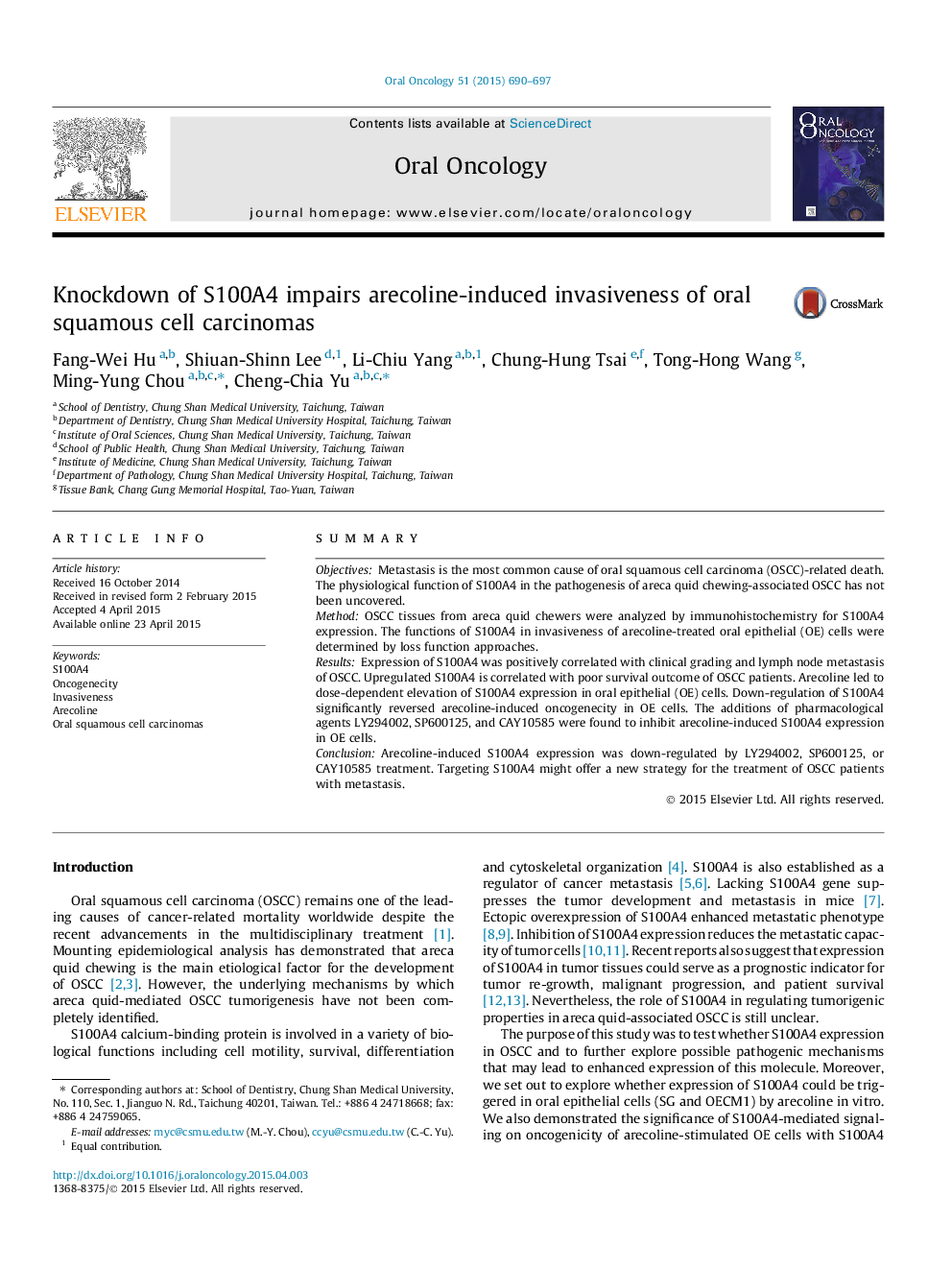| Article ID | Journal | Published Year | Pages | File Type |
|---|---|---|---|---|
| 3163884 | Oral Oncology | 2015 | 8 Pages |
•S100A4 was positively correlated with clinical grading and lymph node metastasis of OSCC.•Targeting S100A4 reversed arecoline-induced invasiveness in oral epithelial cells.•S100A4 as therapeutic target for OSCC.
SummaryObjectivesMetastasis is the most common cause of oral squamous cell carcinoma (OSCC)-related death. The physiological function of S100A4 in the pathogenesis of areca quid chewing-associated OSCC has not been uncovered.MethodOSCC tissues from areca quid chewers were analyzed by immunohistochemistry for S100A4 expression. The functions of S100A4 in invasiveness of arecoline-treated oral epithelial (OE) cells were determined by loss function approaches.ResultsExpression of S100A4 was positively correlated with clinical grading and lymph node metastasis of OSCC. Upregulated S100A4 is correlated with poor survival outcome of OSCC patients. Arecoline led to dose-dependent elevation of S100A4 expression in oral epithelial (OE) cells. Down-regulation of S100A4 significantly reversed arecoline-induced oncogenecity in OE cells. The additions of pharmacological agents LY294002, SP600125, and CAY10585 were found to inhibit arecoline-induced S100A4 expression in OE cells.ConclusionArecoline-induced S100A4 expression was down-regulated by LY294002, SP600125, or CAY10585 treatment. Targeting S100A4 might offer a new strategy for the treatment of OSCC patients with metastasis.
